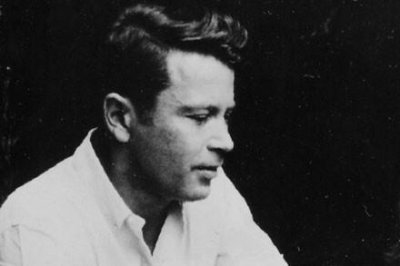Topic: Robert Frost
Quotes
Education is the ability to listen to almost anything without losing your temper or your self-confidence
The almanac Feb 02, 2009
Education is the ability to listen to almost anything without losing your temper or your self-confidence
The almanac Feb 02, 2008
Education is the ability to listen to almost anything without losing your temper or your self-confidence
The Almanac Feb 02, 2007
Education is the ability to listen to almost anything without losing your temper or your self-confidence
The Almanac Feb 02, 2006
Education is the ability to listen to almost anything without losing your temper or your self-confidence
The Almanac Feb 02, 2005
Robert Lee Frost (March 26, 1874 – January 29, 1963) was an American poet. He is highly regarded for his realistic depictions of rural life and his command of American colloquial speech. His work frequently employed settings from rural life in New England in the early twentieth century, using them to examine complex social and philosophical themes. A popular and often-quoted poet, Frost was honored frequently during his lifetime, receiving four Pulitzer Prizes for Poetry.
Robert Frost was born in San Francisco, California, to journalist William Prescott Frost, Jr., and Isabelle Moodie. His mother was of Scottish descent, and his father descended from Nicholas Frost of Tiverton, Devon, England, who had sailed to New Hampshire in 1634 on the Wolfrana.
Frost's father was a teacher and later an editor of the San Francisco Evening Bulletin (which later merged with the San Francisco Examiner), and an unsuccessful candidate for city tax collector. After his death on May 5, 1885, the family moved across the country to Lawrence, Massachusetts, under the patronage of (Robert's grandfather) William Frost, Sr., who was an overseer at a New England mill. Frost graduated from Lawrence High School in 1892. Frost's mother joined the Swedenborgian church and had him baptized in it, but he left it as an adult.
It uses material from the Wikipedia article "Robert Frost."










